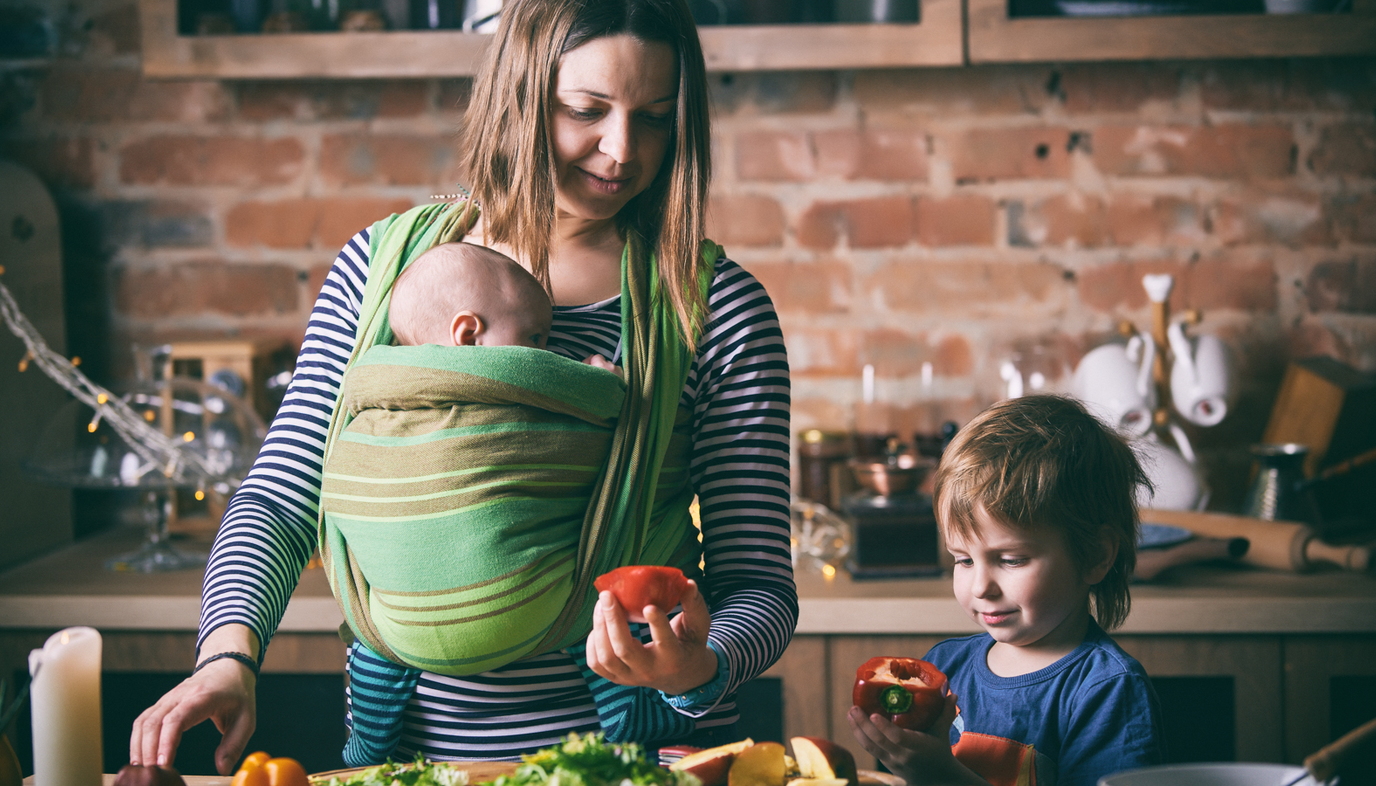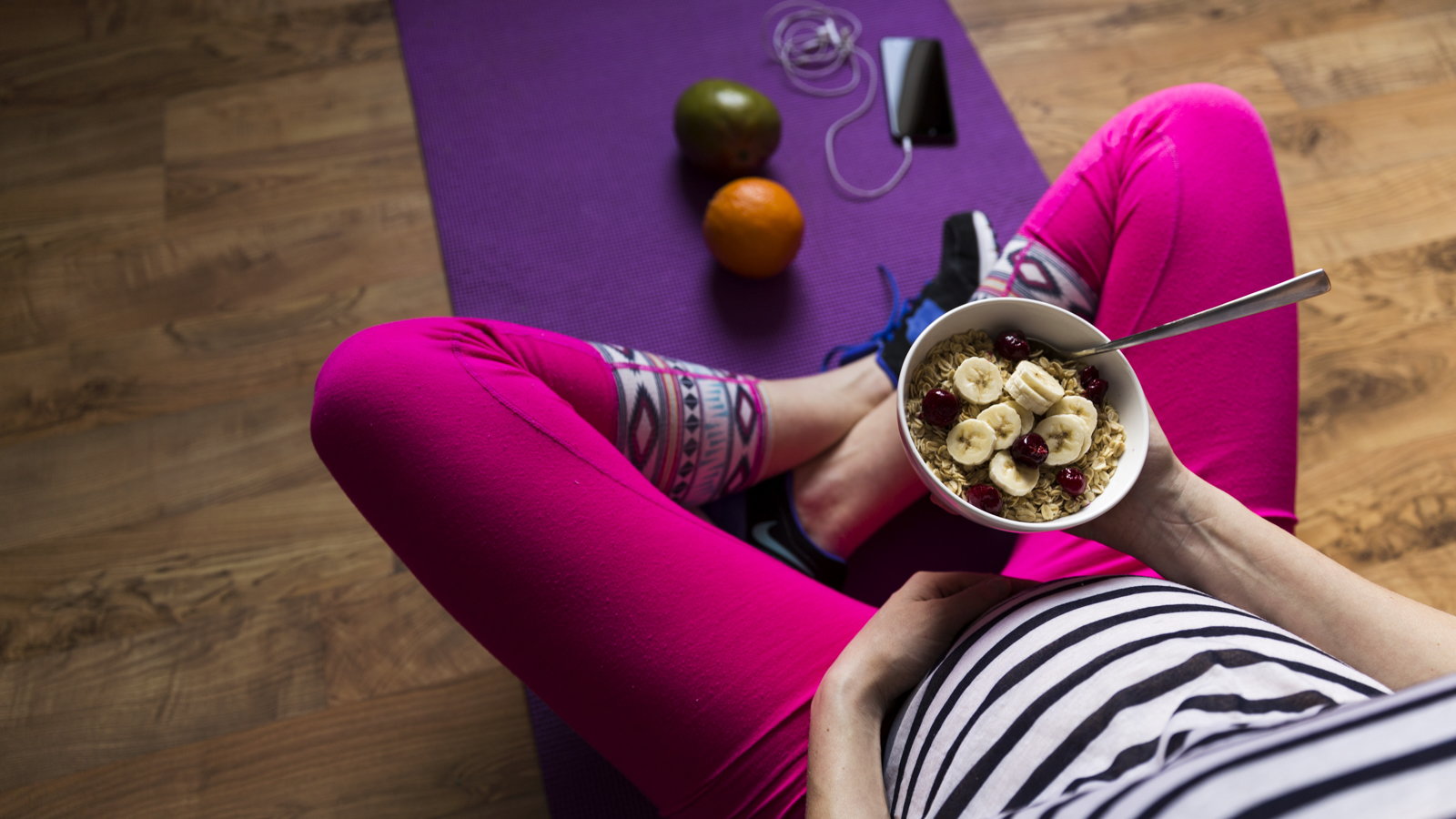
Even if your weight gain was completely healthy while you were pregnant, you’ve probably been looking forward to the time post-pregnancy when you shed some of your extra baby weight. But breastfeeding moms need to be extra cautious about how – and when – they lose the weight so as not to interfere with the quality of their milk, and ultimately, their babies’ nutritional needs.
Wise Limits: Dieting in Moderation
A general rule of thumb is to wait at least two months post-partum before beginning any kind of diet. During those first two months, your hormones are all over the map trying to readjust themselves after pregnancy, you’re probably not getting much sleep, and your body doesn’t need any more big changes. Besides, you will most likely lose weight quickly in those first few weeks without even trying.
After the first two months, and once you have your doctor’s OK, it’s probably safe to start trying to lose the rest of your baby weight. The key is to go slowly and stay healthy.
Going slowly is the best way to protect your health and your milk supply. You don’t want to have a sudden drop in the number of calories you consume, for instance, and you don’t want to drop more than a pound per week. Both of these could hurt your body’s ability to make enough milk for your baby, and it may rob your body of precious nutrients.

Additionally, you want to keep your diet healthy. Don’t go on any sort of “fad” diet that involves only liquids, severely restricted carbohydrates, large quantities of any one food, or diet medications. Instead, stick to the same healthy diet that you followed while you were pregnant: plenty of fruits and vegetables, whole grains, lean proteins, beans and legumes, and low-fat dairy products. Also, don’t cut out all fat: Your baby needs the fat in your milk for healthy brain development, especially the “good” fats (monounsaturated fats and polyunsaturated fats) such as those found in olive oil, nuts, and seeds.
Eat Enough for You and Baby!
If you are counting calories, your diet should not dip below 1800 calories per day. In fact, if your baby is exclusively breastfeeding, you can count on your body using an extra 300 to 500 calories per day to create the milk. That amount is equivalent to the extra calories that you needed when you were pregnant – about two healthy snacks per day above what you would normally be eating.
Exercise is another important part of healthy weight loss. As long as you have your doctor’s approval, you can add moderate exercise to your daily routine so that you burn more calories and build muscle. But again, start up an exercise program slowly and take it easy. Don’t run yourself into the ground with exhaustion. And make sure you keep yourself well-hydrated. It’s always good to drink lots of water while you’re breastfeeding, and if you add on an exercise program, you’ll need to drink more to compensate.
Above all, remember to celebrate your body and be proud of it for the amazing things it has done and continues to do. Your body will almost certainly be different for having given birth to a child – wider hips, softer tummy – but it is no doubt beautiful. (Most breastfeeding moms are also proud of their breasts that are fuller and rounder than ever.) So don’t keep focusing only on what the scale says in the morning. Make sure you look at your whole body in the mirror and appreciate it for who you are and for the amazing gifts that you have given to your baby.
